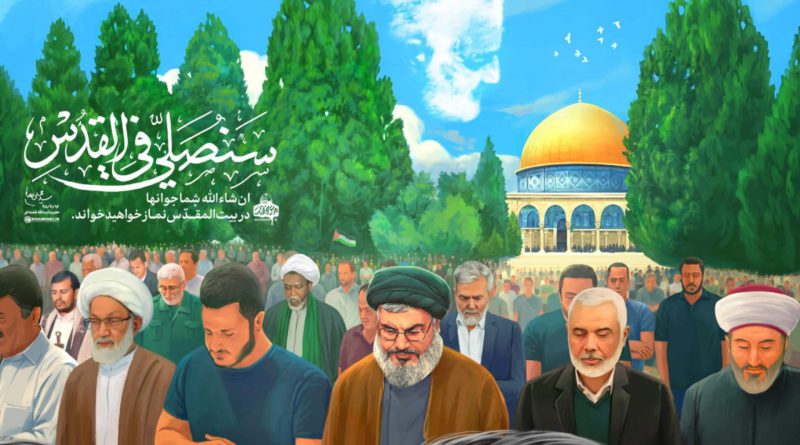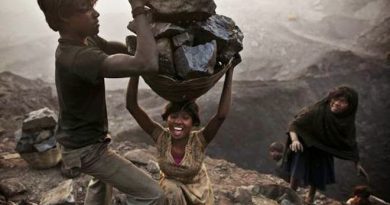Shia Theology Denies Earthly Al-Aqsa—Iran Exploits It as Political Bait
Iran’s rhetoric on Al-Quds is a convenient cloak. It allows Tehran to rally the Muslim street, divide Arab ranks, and export its revolution under the guise of defending Islam’s third holiest site
As flags rise and chants echo on Al-Quds Day, many in the Muslim world assume Iran’s fervor for the Palestinian cause is rooted in deep religious obligation. But beneath the slogans lies a political strategy that has little to do with theology—and far more to do with geopolitics.
Since the 1979 Islamic Revolution, the Iranian regime has positioned itself as the self-appointed vanguard of resistance against Israel. It institutionalized “Al-Quds Day” on the last Friday of Ramadan, not merely to express solidarity with Palestinians, but to amplify its ideological footprint across the Arab world.
Yet, a closer look at Shiite theology reveals contradictions. According to core Shiite beliefs, the holiest Islamic sites are not in Jerusalem, but in Iraq—specifically Najaf, Karbala, Kufa, and Samarra. These cities house the tombs of the Imams and are considered more sacred in Shiite jurisprudence than Al-Aqsa in Jerusalem.
Emirati peace activist and Islamic historian Loay Al-Shareef highlighted this dichotomy in a recent video. Citing classical Shiite scholars like Al-Qulayni and early interpretations of the Prophet’s night journey (Isra and Mi’raj), Al-Shareef emphasized that in Shiite doctrine, the “Al-Aqsa” mentioned in the Qur’an is often viewed as a celestial mosque in the heavens, not the physical mosque in Jerusalem.
He further pointed out that numerous Shiite jurists have historically ranked the mosques of Iraq far above those of the Levant, including Jerusalem. “So why today do you hear Shiite Iran chanting about Free Palestine or Al-Quds Day? It’s political, not theological”, he says.
Indeed, Iran’s support for Palestinian factions—especially Hamas, a Sunni Islamist group—is not rooted in sectarian affinity. Rather, it is a tactical move to project power across the Sunni Arab world and challenge the influence of regional powers like Saudi Arabia, Egypt, and the Gulf States.
Loay said, “After the 1979 Islamic Revolution, the new Iranian regime hijacked the Palestinian cause. Not because of religious devotion to Jerusalem, but because Israel stands as a barrier, a deterrence.”
“A strong Israel prevents Iran from expanding its influence across the Sunni Muslim world. It’s not about Palestine, it’s about power”, he added.
This was confirmed by leaked Iranian documents in past years, which revealed Tehran’s deep involvement in proxy networks across Lebanon, Iraq, Syria, and Yemen. The goal: surround Israel and rival Sunni regimes with ideological allies.
More recently, a chilling warning came from Mohammad Marandi, former adviser to Iran’s nuclear negotiating team. In a post on X, Marandi threatened that if the U.S. joined the war, the governments of Qatar, Kuwait, UAE, and Bahrain “would not last more than a few days or even a few hours.” He urged immediate evacuation from these countries—remarkably excluding Saudi Arabia from his threat.
Author and former MI6 spy Aimen Dean noted that Iran’s Ariana News Agency had repeated this threat, calling for retaliation not against Israel, but against GCC states—underscoring once again that Tehran’s war posture is about regional dominance, not Palestinian liberation.
What this reveals is sobering: Iran’s rhetoric on Al-Quds is a convenient cloak. It allows Tehran to rally the Muslim street, divide Arab ranks, and export its revolution under the guise of defending Islam’s third holiest site—one it does not even hold supreme in its own theology.
Meanwhile, the Palestinian cause becomes a pawn. Iran’s influence has deepened internal divisions within Palestinian factions, with rivalries between Hamas and Fatah escalating over foreign loyalties. The people of Gaza and the West Bank suffer, while Iranian media broadcasts dramatized images of “resistance.”
In this equation, truth and theology are casualties. As Gulf nations modernize, diversify, and move toward normalization and regional stability, they are increasingly targeted—not by Israel—but by Tehran’s ideological militias and cyber proxies.
If the world is to have an honest conversation about Al-Quds, it must start by untangling faith from strategy. Iran’s flags may fly high on Quds Day, but what drives them is not religious obligation—it is geopolitical ambition.


